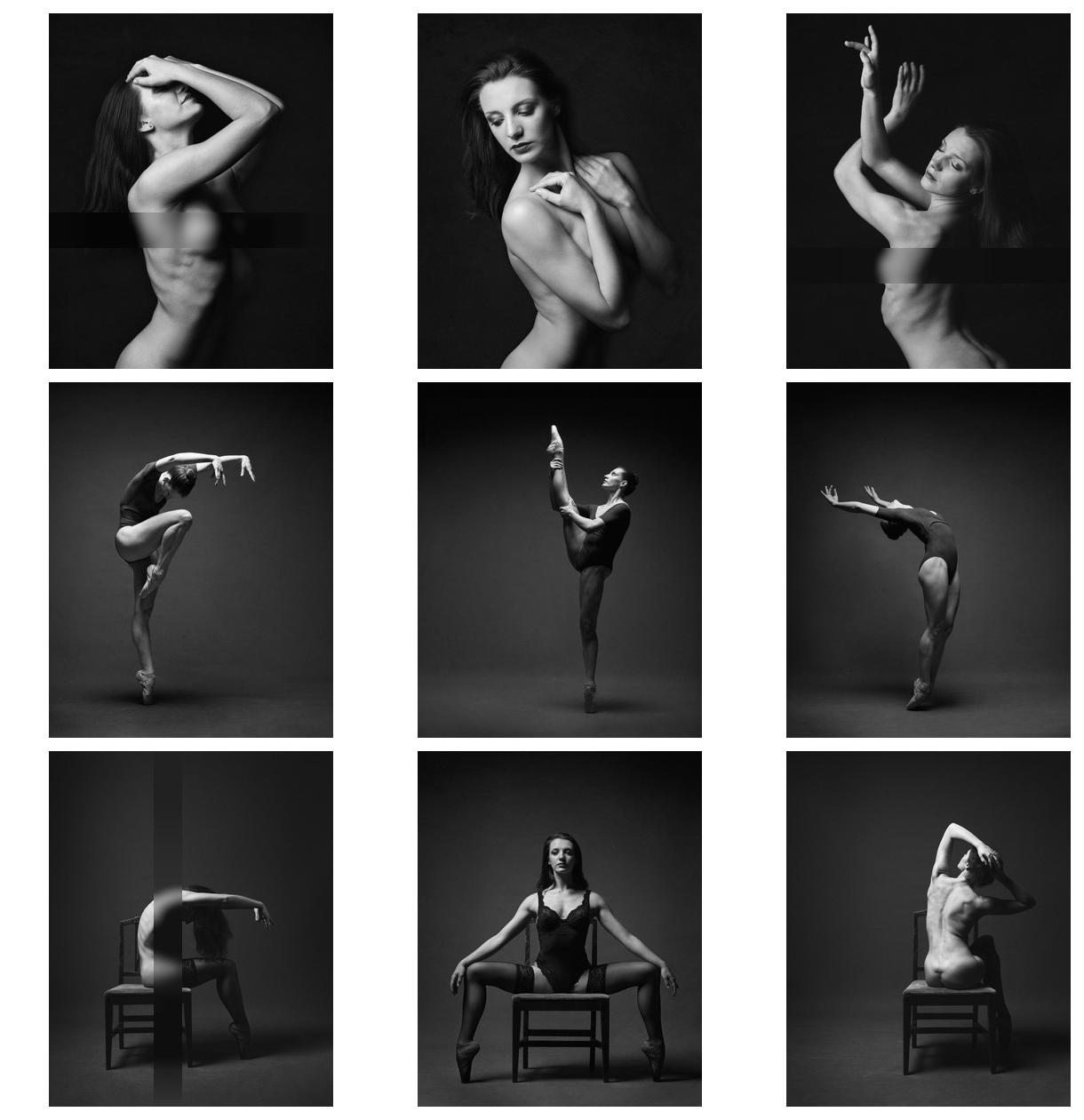Ein Mann, eine Gitarre, ein Studio, bissl. Nebel und Freude am Tun.
Kategorie: Performance
Ballerina – Fine Art
Meine Auswahl von einem sehr facettenreichen Shooting gemeinsam mit einer professionellen Ballett Tänzerin. Ballett ist ein sehr ausdrucksstarker und ästhetischer Tanzstil – weshalb die Posen in meinen Augen sehr gut einhergehen mit klassischen Aktaufnahme, besonders in Schwarz-Weiss. Denke diese Serie stellt das wunderbar unter Beweis.
Dance is life
Dance is discipline, work, teaching, communication. With it we spare words that perhaps others would not understand and we establish a universal language, familiar to all. It gives us pleasure, makes us free and comforts us from the impossibility that we humans have of flying like birds, it brings us closer to heaven, to the sacred, to infinity. It is a sublime art, always different, similar to making love, which at the end of each performance leaves our heart beating fast, hoping for the next time.
(Julio Mouth)
blind dance (CobosMika Seeds program)
Dancers continue their formation through programs around the world. I am lucky enough to be able to record the work of the CobosMika Seeds program at Vall Llobrega on the Costa Brava in Spain. In this exercise, the dances are moving blindly helped at times by the contact they have with others. Promising young dances are selected fom applicants after auditiones and come mainly from European countries but there are also some from the Americas and Australasia
unschärfemoment im raum der stille…..
Arte Flamenco Festival 2022
Giulia
spotlight I-VI
Vote for the Cover of STRKNG Editors‘ Selection – #55
Please help us to find the next cover image for our issue »STRKNG Editors‘ Selection – #55«
1) »Eliska« – © Photographer R.e.m.i
2) »Lea – 6×6 Ilford HP5« © Photographer Martin Slotta Photographie
3) »hanging« – © Model Sebastian Löwe
4) »Warten…« – © Sprache der Seele
5) »Faye« – © Photographer Janine Kuehn
6) »Hidden« – © Photographer Dirk Rohra
7) »Ankie« – © Photographer Heinz Porten
8) »The light keeper« – © Photographer Kollektivmaschine with Model londoncoffee3
9) © Model Jott with Photographer Victor Hamke
Use only one number in the comment.
Only one vote per person. Thank you!
Voting ends Wednesday 15th September 23:55h MET
Publication covers so far….
https://strkng.com/en/publications/
Teilnehmer: Fotograf Dirk Rohra / Fotograf Heinz Porten / Model Jott / Fotograf Kollektivmaschine / Model londoncoffee3 / Fotograf Martin Slotta Photographie / Fotograf R.e.m.i / Model Sebastian Löwe / Fotografin Veronika's Blickwinkel / Fotograf Victor
Britta as Charly by Hans Hoyer
Ein Projekt mit Hans, entstanden aus einem tiefen Wunsch heraus.
Charly hat mich als Mensch und Darsteller schon immer fasziniert.
Gesagt, getan. Quer durch Hamburg sind wir gezogen und es ist eine wahre Bilderflut entstanden. Bilder, über die ich selbst staune. Hans Hoyer, hat ein solch wunderbares Auge für Perspektiven, Licht und Schatten. Ich hoffe, Ihr habt Freude mit der Serie.









